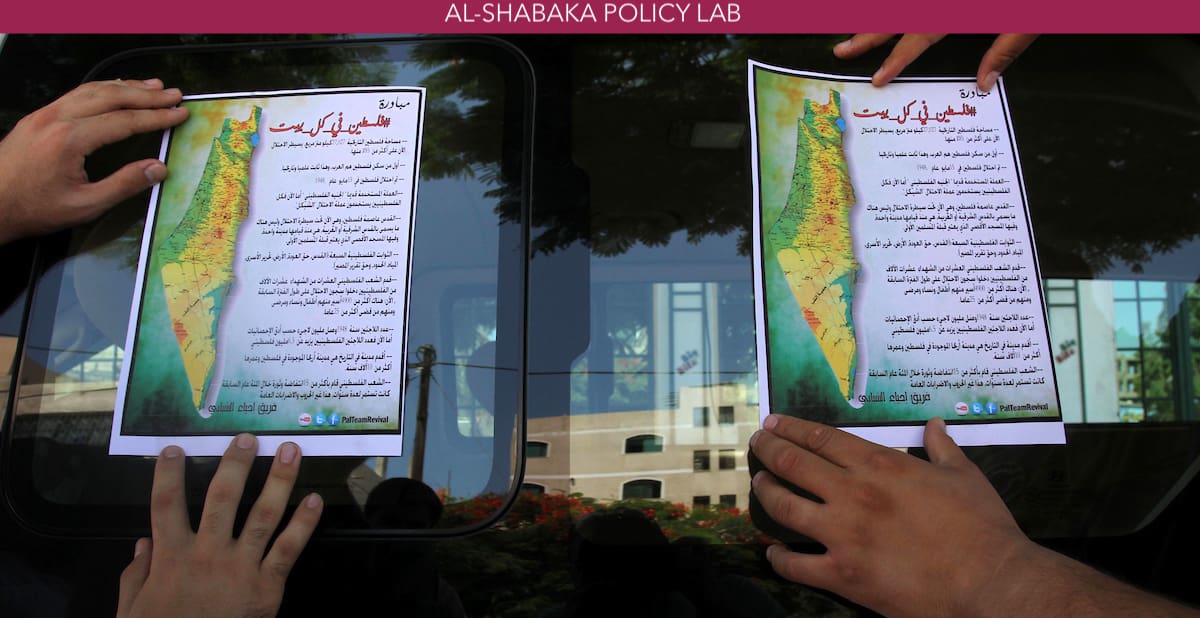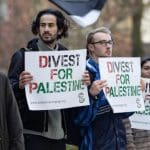
“The practice of mapping in Palestine-Israel has long been an exercise in power, imperialism, and dispossession.” So writes Zena Agha in her recent policy brief for Al-Shabaka. But how can maps be reclaimed as tools for resistance? And can they be utilized to help envision a different Palestinian future?
In our first policy lab of 2020, Zena Agha and Ahmad Barclay discuss the ways in which maps and other visualization tools serve as sites to entrench power disparities as well as to empower communities to reimagine their colonized homelands.
Zena Agha is the Interim Director of the British Palestinian Committee. She previously served as Al-Shabaka’s US Policy Fellow (2017–2019), where her research focused on Israeli spatial practices, climate change, and Palestinian adaptive capacities. She was awarded the Kennedy Scholarship to pursue an MA in Middle Eastern Studies at Harvard University and holds a PhD from Newcastle University, where her research examined colonial cartography in Palestine. Her writing has appeared in The New York Times, Foreign Policy, The Nation, The Independent, Foreign Affairs, NPR, and El País.
Al-Shabaka Policy Member Ahmad Barclay is an architect and environmental designer presently based in Beirut. He is co-founder of arenaofspeculation.org, and also works on Visualizing Palestine and #3awda. Ahmad previously worked with DAAR (Decolonizing Architecture Art Residency) on the “Laboratory of Returns” project, investigating architectural models for the return of Palestinian refugees. His academic research has focused on the potentials of architecture and planning as tools of ‘spatial resistance‘ in the Palestinian struggle.














